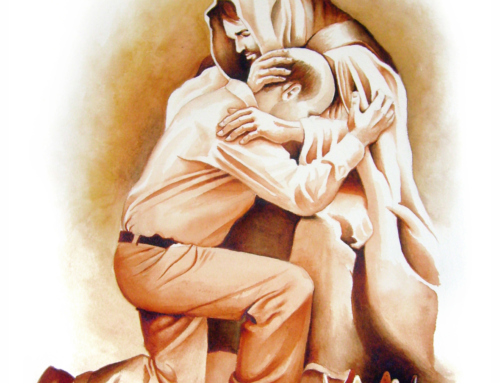“How dare you!” In a moment of outrage, we lash out, responding to outrageously hurtful comments. We’ve all been there. One of life’s biggest challenges isn’t how to get others to stop being hurtful; it’s how to respond in love.
Like many teenagers, I had anger issues. The smallest offense sent me into a frenzy. After a particularly embarrassing episode in ninth grade, though, I prayed that God would remove my anger. And He did. As a recovering perfectionist (a #1 in Enneagram), I still struggle at times, but anger no longer controls me. Still, there are times when a bit of the old Tim comes out.
A bit of the old Tim
Chances are, there’s a bit of the old you still in you too, no matter how long you’ve been a Christian. And a little of the old Tim came out when my co-worker Russell barked at me, “Doesn’t it ever cross your mind that all this religion is just a pile of XXXX?!”
Although I didn’t reciprocate Russell’s venom, my heart and tone were anything but gracious. I was proud of what I didn’t say! Well, a few days later in church, it was as if Jimmy Draper was preaching at just me, penetrating and convicting my deepest soul. He spoke about our hearts and the need to forgive people who have wronged us . . . to ask for their forgiveness.
What?! Russell is one who should apologize, right? Nope. I had to apologize to Russell, which I did the next day. And I’ll never forget the look on Russell’s face. Shocked. Dumbfounded, actually. He couldn’t believe I was sincerely asking for forgiveness due to my lack of grace, and promising to do better.
The point isn’t my apology; it’s that apologies can and do triumph over anger. At work. At home. At school. Anywhere. Apologies triumph, that is, if we’re trying to help others, not us. If we’re trying to feel better about ourselves, we naturally lash out and build walls. When we’re trying to bless the offender, though, our responses are very different. We’re unnatural and grace-filled. Here are a few questions that may help you too in triumphing over anger:
- Do I want to model being right, or model being righteous?
- Do I want to win today’s trivial debate, or train tomorrow’s winning disciple?
- Do I want to build my reputation of facts, or build relationships of faith?
For even if Russell hadn’t been blown away by my apology, it was the right thing to do. It changed my life and, in turn, my kids’ lives because I began learning the power of a sincere apology.
4 ways that sincere apologies triumph over anger
- Apologies turn negatives into wows.
Sincere apologies make memory tattoos – priceless memories that people can’t forget and wouldn’t want to. The worse negatives can become wows that leave the best marks. Even kids will forgive almost anything, other than a pattern of hypocrisy and a failure to try. And they forgive occasional lapses if followed by a sincere apology.
- Apologies turn learning into leading.
Leaders take the sword, even when they’re only 2 percent at fault. It shows strength, not weakness. They are quick to apologize and slow in having to. That is, true leaders work hard at not doing things that require apologies, but they look for reasons to apologize in order to lead well.
- Apologies turn opposition into openness.
Sincere apologies are disarming. They inspire. They endear. They open up a whole new world of relationships by proving you care about others more than your pride. We all want to be around people who want better from themselves and better for us. Sincere apologies also open people to the faith that makes sincere apologies possible.
- Apologies turn embarrassment into engagement.
Rather than languishing in embarrassment, live in the freedom of sincerely apologizing and leaning into the people whose trust you want to restore. We know we should do better but when we don’t, run toward, not away, from them. Apologies enable both of you to stop looking back to the pain of broken relationships and start looking forward to the joy of restored relationships.
Although Russell passed away, I pray that God used my simple apology to touch his heart. Then again, we’re not responsible for someone else’s response, just ours. And when a bit of the old you shows up, let something else show up – a sincere apology. Don’t live with regret. God really can heal you, but it starts by sincerely apologizing for your sins. Then He’ll engage you, open your heart, lead you along a new path, and turn your old ways into a wow.
Questions: Like Brother Jimmy’s sermon, whose life could be changed by a sincere apology from you? Will you ask God how He could use your humility to open someone else to Him?






Hardest to do, best results ever! Thanks for sharing.
Rita Kirkland